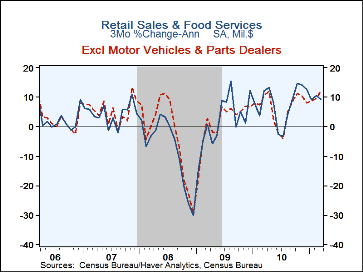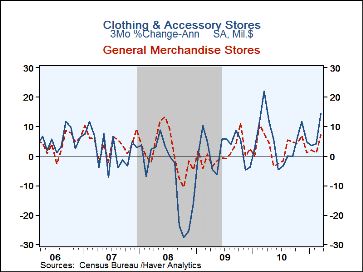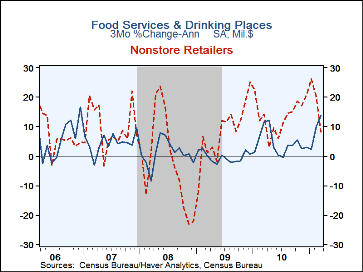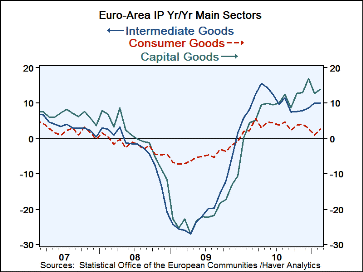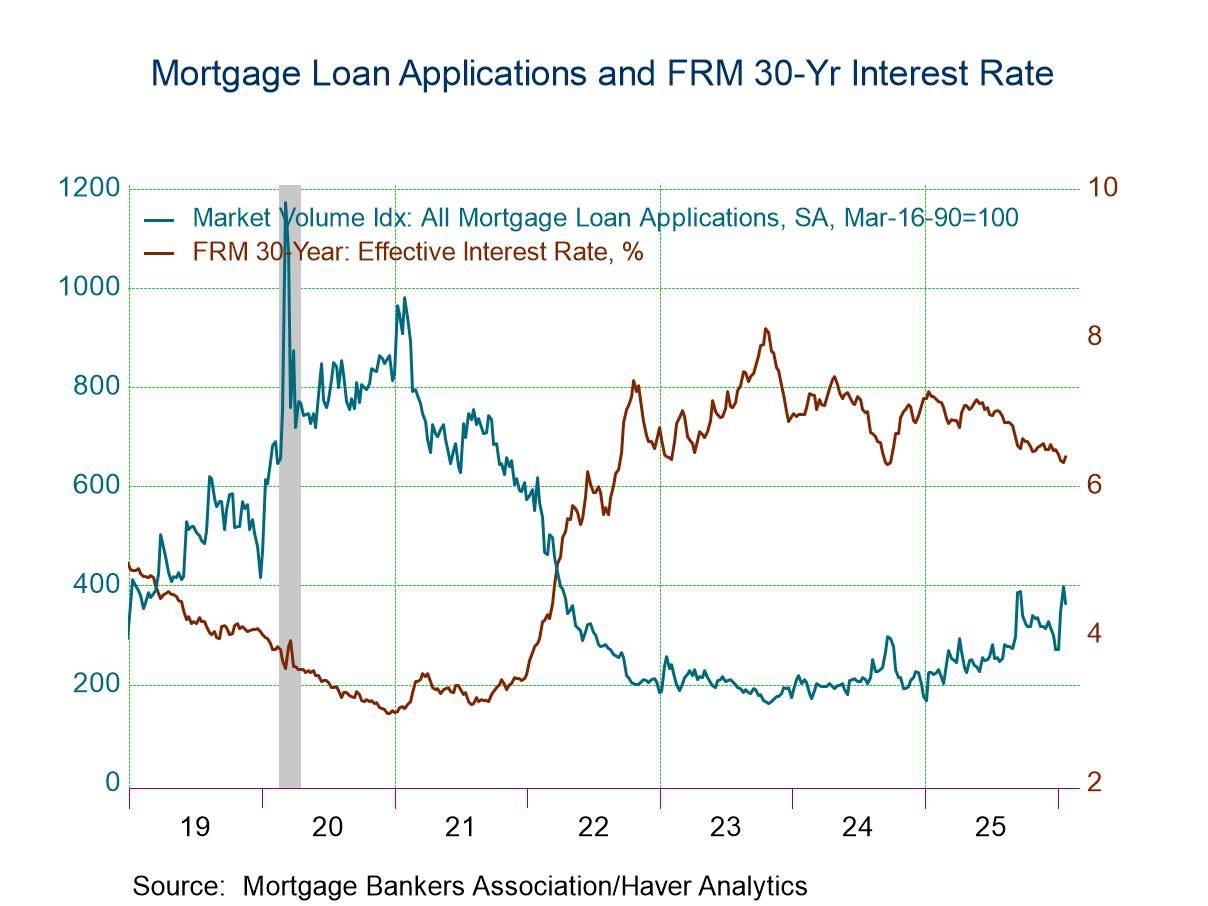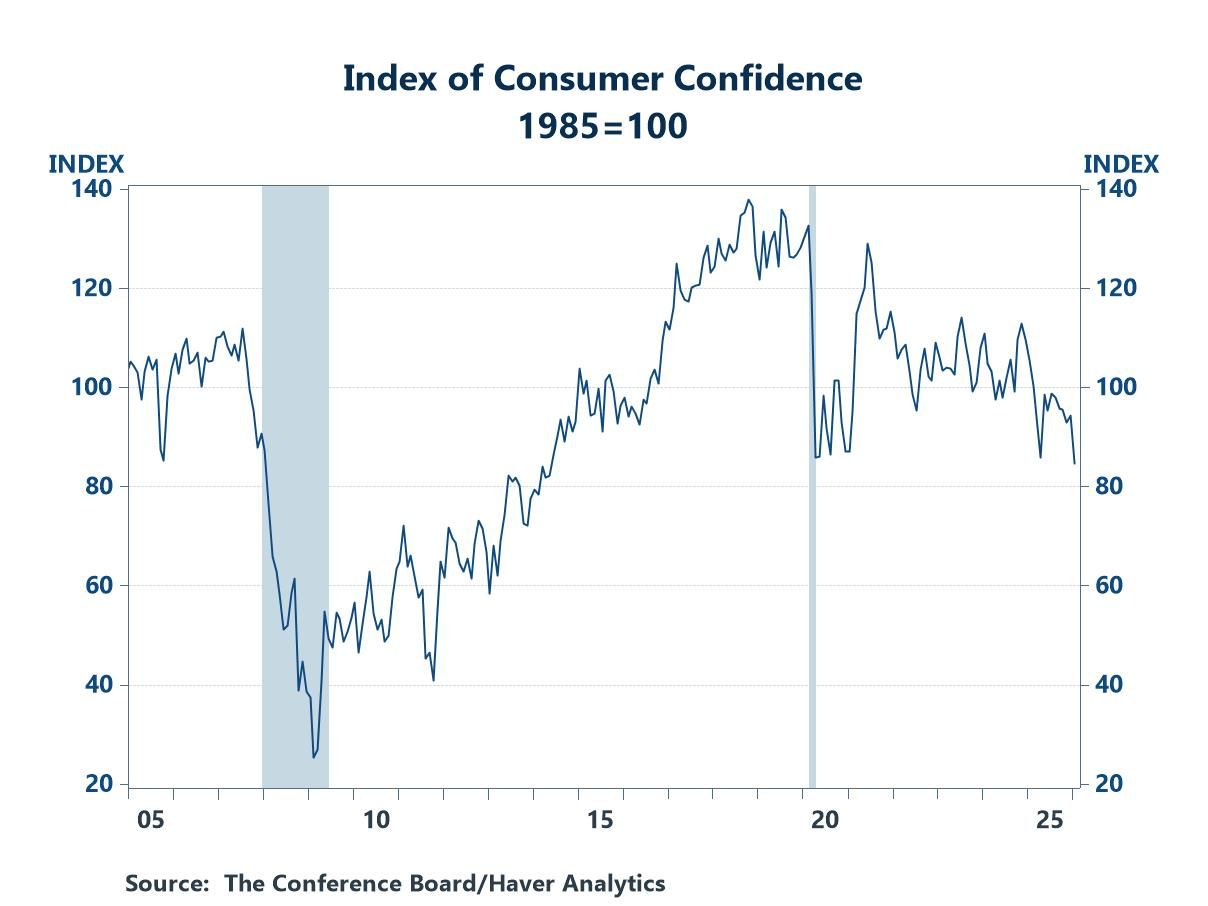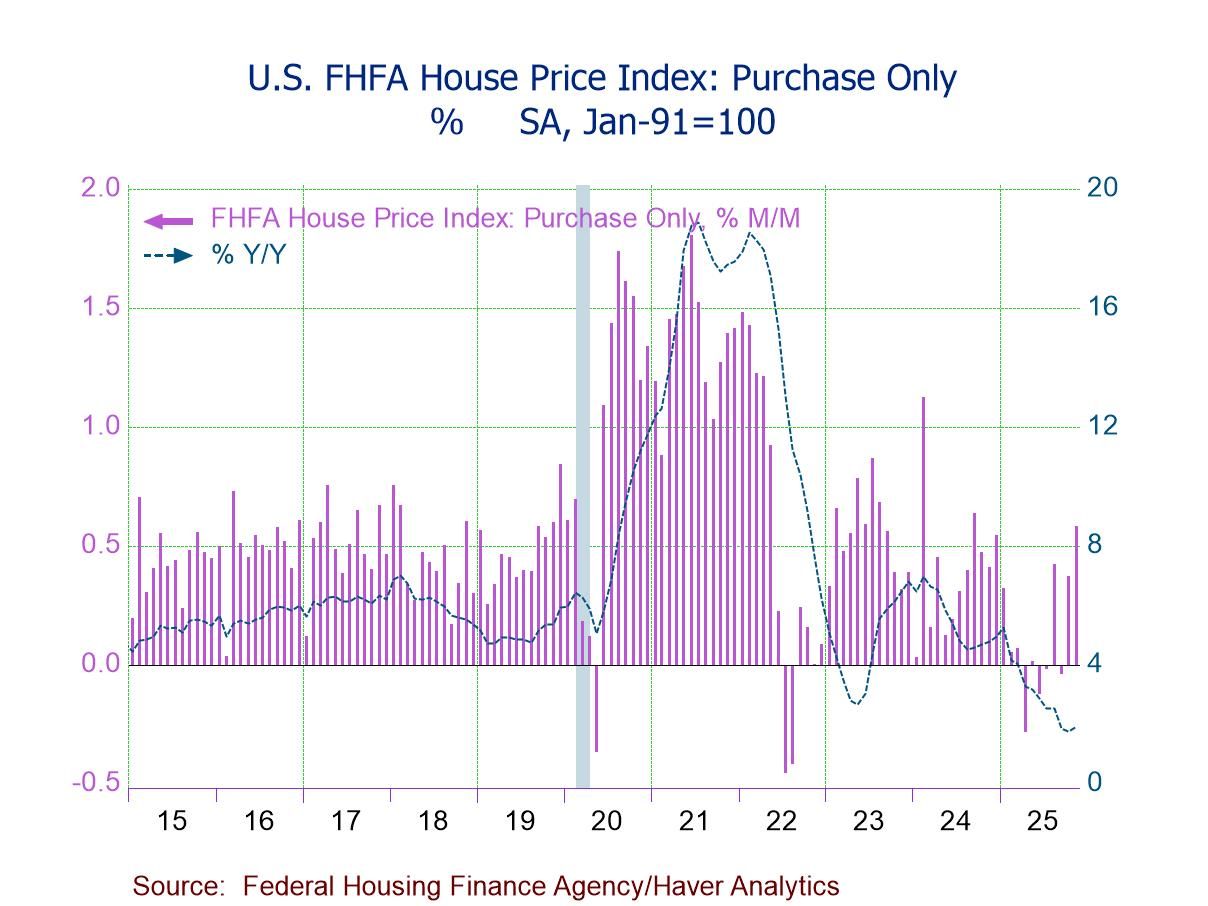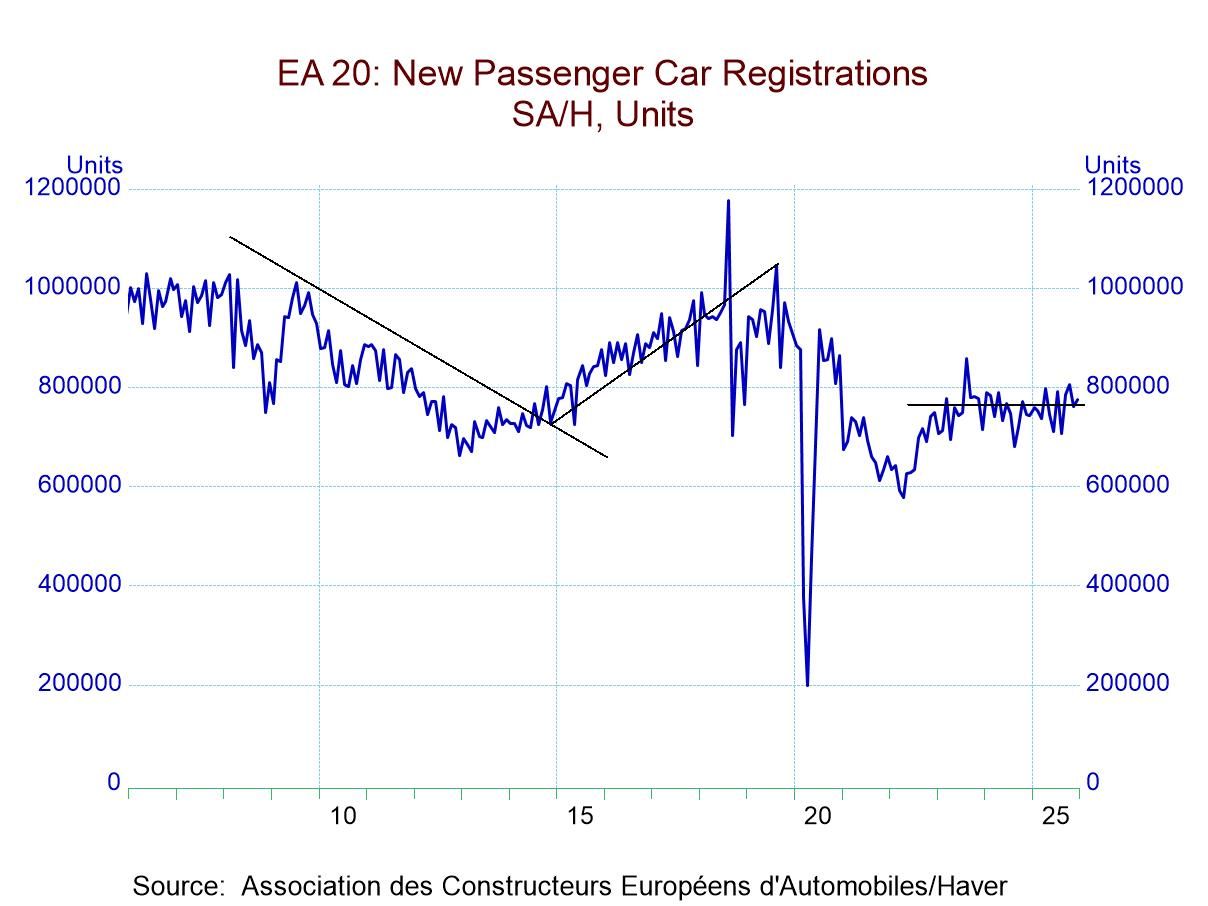 Global| Feb 28 2011
Global| Feb 28 2011NABE Says Economic Growth Will Be Higher In 2011
by:Tom Moeller
|in:Economy in Brief
Summary
The National Association for Business Economics indicated an upward revision to its latest growth forecast. For this year, real GDP growth should average 3.3%, versus 2.6% expected three months ago. For next year, growth is expected [...]
The National Association for Business Economics indicated an upward
revision to its latest growth forecast. For this year, real GDP growth should
average 3.3%, versus 2.6% expected three months ago. For next year, growth
is expected to continue at a 3.4% rate. Underpinning the expansion is the
consumer whose spending is expected, in 2011, to rise a still-moderate 3.2%,
versus a 2.4% forecast three-months ago. Next year growth should continue at a
2.9% rate. Also revised higher were expectations for growth in business and
residential investment.
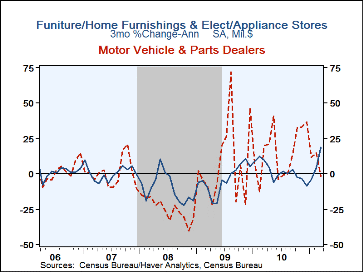
Expectations for housing starts and light vehicle sales were ratcheted up slightly for this year and continued growth is expected in 2012, though levels should remain well below their pre-recession peaks. Also, gains in payroll employment were improved at roughly 200,000 per month for both this year and next as the unemployment rate is expected to fall modestly to 8.4% for all of next year. The moderate nature of the recovery is forecast to lend modest upward pressure to consumer prices; up 1.9% for all of next year. The bond market is, however, expected to demand more of an inflation premium. Long-term interest rates are expected to be 4.5% by the end of next year versus 3.3% at the end of 2010. Crude oil prices are expected to average $96 in 2012 versus a $93 average in 2011.
Improved economic growth is projected to generate positive growth in corporate profitability. However, the 6.5% growth rate for next year and 9.8% for this year remain well below the 25% 2010 increase. Moderate economic growth also is expected to reduce the federal government budget deficit to $1.1 trillion in 2012 from its $1.4 trillion peak this year.
The figures from the latest NABE report can be found in Haver's SURVEYS database.
| National Association For Business Economics | 2012 | 2011 | 2010 | 2009 | 2008 |
|---|---|---|---|---|---|
| Real GDP (% Chg. SAAR) | 3.4 | 3.3 | 2.8 | -2.6 | 0.0 |
| Personal Consumption Expenditures | 2.9 | 3.2 | 1.8 | -1.2 | -0.3 |
| Nonresidential Structures | 4.8 | 1.4 | -13.8 | -20.4 | 5.9 |
| Producers' Durable Equipment & Software | 10.4 | 12.1 | 15.1 | -15.3 | -2.4 |
| Residential Investment | 12.0 | 4.4 | -3.0 | -22.9 | -24.0 |
| Change in Real Business Inventories (Bil. $) | 48.7 | 46.5 | 60.4 | -113.1 | -37.6 |
| Real Net Exports (Bil. $) | -435.6 | -423.8 | -421.8 | -363.0 | -504.1 |
| Housing Starts (Mil. Units) | 0.85 | 0.66 | 0.59 | 0.55 | 0.91 |
| Light Vehicle Sales (Mil. Units) | 14.0 | 13.0 | 11.6 | 10.4 | 13.2 |
| Payroll Employment Avg. Monthly Change (000s) | 216 | 178 | 76 | -422 | -300 |
| Unemployment Rate (%) | 8.4 | 9.1 | 9.6 | 9.3 | 5.8 |
| Consumer Price Index (Y/Y %) | 1.9 | 1.8 | 1.6 | -0.3 | 3.8 |
| Fed Funds Rate (%, Year End) | 1.500 | 0.125 | 0.125 | 0.125 | 0.125 |
| 10-Year Treasury Note (%, Year End) | 4.50 | 3.90 | 3.30 | 3.85 | 2.25 |
Tom Moeller
AuthorMore in Author Profile »Prior to joining Haver Analytics in 2000, Mr. Moeller worked as the Economist at Chancellor Capital Management from 1985 to 1999. There, he developed comprehensive economic forecasts and interpreted economic data for equity and fixed income portfolio managers. Also at Chancellor, Mr. Moeller worked as an equity analyst and was responsible for researching and rating companies in the economically sensitive automobile and housing industries for investment in Chancellor’s equity portfolio. Prior to joining Chancellor, Mr. Moeller was an Economist at Citibank from 1979 to 1984. He also analyzed pricing behavior in the metals industry for the Council on Wage and Price Stability in Washington, D.C. In 1999, Mr. Moeller received the award for most accurate forecast from the Forecasters' Club of New York. From 1990 to 1992 he was President of the New York Association for Business Economists. Mr. Moeller earned an M.B.A. in Finance from Fordham University, where he graduated in 1987. He holds a Bachelor of Arts in Economics from George Washington University.


